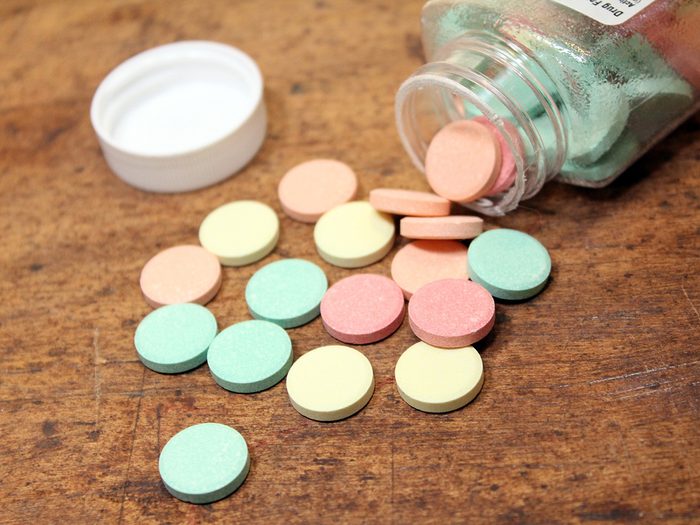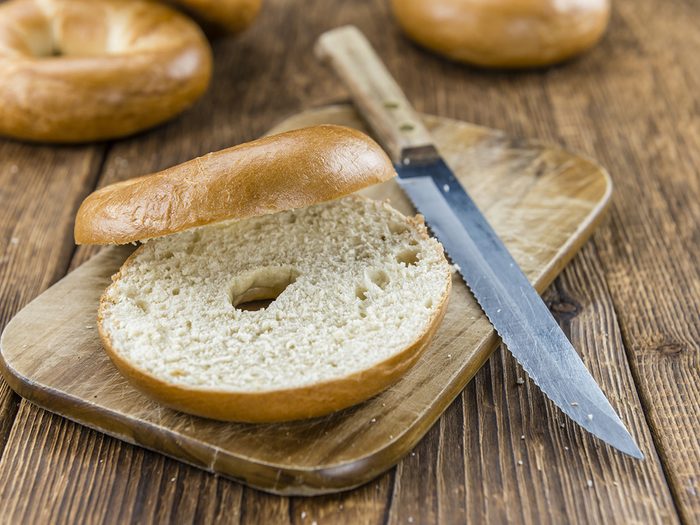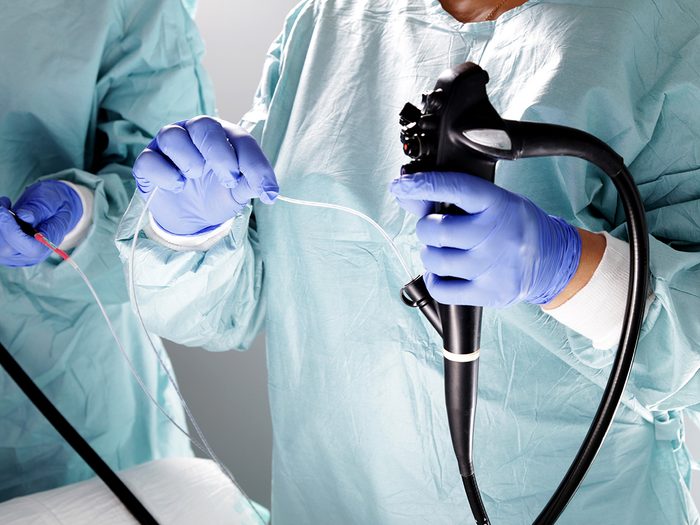
Heartburn: Feeling that burn
It could have been that grapefruit you had for breakfast or the late-night chocolate ice cream fest you indulged in right before bed. Whatever the cause, there’s now a familiar burning sensation under your breastbone that’s stretching up to your throat and creating a sour taste in your mouth. Readers, this is heartburn. “Heartburn refers to pain coming from the chest or throat, caused when stomach acid refluxes back up into the esophagus,” says Dr. Bill Cavers, a family doctor in Victoria, BC.
When we swallow, a muscle around the bottom of the esophagus, the lower esophageal sphincter (or LES), relaxes to allow food and drink to flow down into the stomach. After you’ve swallowed a mouthful, the muscle tightens up again. If the LES relaxes too much, or becomes weak, we can experience reflux.
Food can be a common culprit, says Christy Brissette, a registered dietitian and president of 80 Twenty Nutrition in Toronto. “I see plenty of clients for digestive issues and heartburn is one of the most frequent problems I hear about,” she says.
The Yoga Routine for Better Digestion
There are an array of issues and circumstances beyond food that can increase a person’s chances of feeling the burn. Pressure on the stomach due to a big tummy (from carrying excess weight or a pregnancy), or even intense exercise, can cause heartburn. Smoking can be a trigger, as can certain medications including ibuprofen, antihistamines, sleeping pills and iron supplements. Stress can be to blame, too, increasing a person’s production of stomach acid, which can pose a problem for some people. A more serious condition, like a hiatal hernia (which occurs when a small section of stomach bulges up through a hole in the diaphragm) can also create reflux.
Occasional heartburn is common and not typically cause for concern, say the experts. But, if the usually recommended lifestyle changes and over-the-counter remedies aren’t working — or you’re popping antacids like candy — it’s time to talk to your doctor to rule out a more serious condition. Read on for all the facts and tools you need to beat the burn.
Hilary Duff Isn’t Shy About Taking Care of Her Digestive Health

Make the necessary lifestyle changes
Quitting smoking, maintaining a healthy body weight, avoiding known trigger foods (like coffee and spicy meals) might be all it takes to get a mild heartburn problem under control.

Try propping up your head while you sleep
If you’ve eaten a big meal too close to bedtime, or indulged in one of your known trigger foods, (ahem, a slice of dark chocolate torte and a cappuccino to top off a dinner out, perhaps), this may help you avoid nighttime heartburn. A wedge pillow (or extra pillow) in bed will keep your head higher than your stomach while you sleep, so your body can utilize gravity to prevent acid reflux.

Find a pair of loose pants you love
And lose the skinny jeans. Tight pants can actually put enough pressure on your stomach to drive acid up into your esophagus, triggering heartburn. “Yes, I give you permission to wear comfy pants!” says Brissette.

Take an antacid when you need it
It’s totally safe to use an over-the-counter remedy (like Tums or Rolaids) to treat occasional heartburn. These products contain calcium carbonate to neutralize stomach acid, which is non-habit forming and doesn’t have any side effects. If you rely on them so much that you’re in danger of exceeding the recommended limit on the packaging though, talk to your doctor.

Embrace bland meals
People with heartburn are often just more sensitive to tough-to-digest foods. Spicy dishes, fried foods, acidic foods like tomatoes, chocolate and coffee, can all spell trouble for many heartburn sufferers. Tip: Eating smaller meals can make food easier to break down in the stomach and prevent the burn.
Still love spicy foods? Here are some of the health benefits.

Ask a dietician for advice
If you think something in your diet is triggering your heartburn, but are having trouble pinpointing the problem foods, a dietitian can help you evaluate your food choices. “Acidic foods such as citrus fruit, tomatoes, chocolate, coffee and tea are some of the most common foods that make heartburn worse,” says Brissette. Deep-fried and fatty foods can be problematic because they’re tough to digest. Spicy foods and alcohol can also bring on the burn, she says. “Even peppermint tea can be an issue because it causes the muscle at the top of the stomach to relax, making it more open and allowing acid to bubble up.”
Peppermint tea might not be great for heartburn, but teas and tisanes have some mind-blowing health benefits.

Monitor the accompanying symptoms
There are a few that can signal more serious problems. For example, heartburn along with abdominal pain may indicate gallbladder disease. Heartburn that comes with a feeling that food is stuck in your throat, a hoarse voice, wheezing or bad breath may indicate Gastroesophageal Reflux Disease (GERD). Some people can manage GERD with lifestyle changes, but more severe cases may require medications or even surgery. Talk to your doctor if you have a combination of symptoms that concerns you.

Consult your doctor if heartburn is persistent
If it occurs more than a few times a week or is particularly severe and doesn’t respond to over-the-counter medications, you need to see a pro. “For patients whose heartburn isn’t responding to the usual treatments, your doctor may recommend an endosocopy, the positioning of a fiberoptic scope that directly views the esophagus and stomach to look for scar tissue in the esophagus,” says Dr. Cavers. Reflux can create scar tissue that can narrow the pathway and create problems with swallowing. Over time, reflux puts you at an increased risk of esophageal cancer. “That’s why it’s important to identify what’s triggering the acid reflux and take steps to prevent it,” says Dr. Cavers.

Call 911 if you ever feel a squeezing, as opposed to a burning, pain in your chest
If symptoms also include shortness of breath and/or significant sweating there’s a chance you’re experiencing a heart attack, not just severe heartburn. Unfortunately, it’s common to mistake the two, says Dr. Cavers. “But it’s always better to leave the emergency room feeling a little silly, than to wish you had gone sooner.”
How a Cardiologist Suggests You Manage Your Heart Attack Risk
